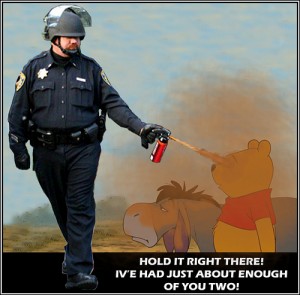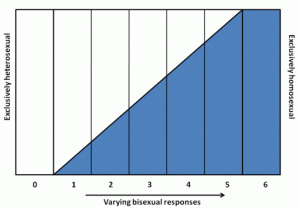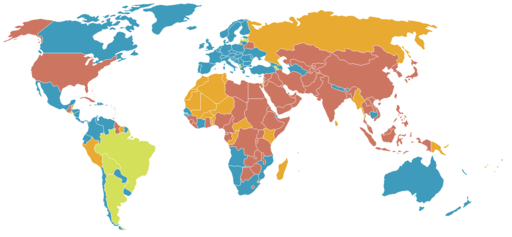When I first started contemplating this blog entry two weeks ago and change, Occupy Wall Street was barely news. The accusations that the mainstream media and Twitter were suppressing it were only very recently becoming past as it started to be more publicized. (I’m satisfied that it wasn’t covered up. The Twitter censorship claim’s been pretty well debunked, and the national news media probably didn’t think it was going to be much of a thing until it became one.)
And it seemed pretty obvious to me right away that Occupy Wall Street could be, at least in part, described as a left-wing Tea Party. Now, to describe it in that particular way is to instantiate the Tea Party and the right wing as the default, but in that the Tea Party came chronologically first that’s not totally unreasonable.
Oddly, this didn’t seem obvious to anyone else. House Majority Leader and Tea Party ally Eric Cantor (R-VA), in fact, called Occupy Wall Street a “mob” (and then, as in that particular article, caught flak for it). And right-ish New York City mayor Michael Bloomberg (he was a Democrat, then a Republican, then Independent, but he’s obscenely wealthy enough to be worried by the kinds of arguments they’re making) was anything but sympathetic. Recently, he’s been promising to increase arrests.
It was perhaps unsurprising that the Tea Party themselves would resist this comparison, as indeed they did, because it would undermine them as the go-to for populist anger.
But what I didn’t anticipate was the level of hatred in the rhetoric the Tea Party used in rejecting the similarity. Mark Meckler of Tea Party Patriots, in a Politico opinion piece, said that the comparison “bothers me because it groups millions of patriotic tea partiers, who want to build America back up, together with a bunch of criminals who want to tear America down.”
Wait, seriously? I get that he thinks their proposals would lead to ruin (they surely feel the same way about his), but I don’t follow the leap from having a different opinion about the right direction to head to actively intending to destroy the nation. Even more perplexing is the contention that OWS is “a bunch of criminals.” What crime, exactly, are they guilty of?
Of course, the weird disconnect that equates peaceful (albeit disruptive) protestors with criminals has been an important
question since the first reports emerged of NYPD officer Anthony Bologna pepper-spraying apparently nonviolent protestors. And girls at that! (Insert notions of women’s weakness here.)
There has been pushback on this assumption of criminality, of course. Bologna’s actions were widely decried (though sometimes for the wrong reasons, see previous aside). The outrage against the actions of Oakland police against Occupy Oakland is in the same vein. Because seriously, I get that Oakland PD isn’t a paragon of police restraint on a good day and they’ve had enough riots to be paranoid, but riot gear and tear gas against protestors, really?
Indeed, U.S. News and World Report blogger Leslie Marshall asks, “Why Do Police Treat ‘Occupy-ers’ Like Terrorists, Not Tea Partyers?”
And hey, there’s the Tea Party again. This comparison keeps cropping up, and that means something.
But resistance to thinking about the two together isn’t just coming from the Right. Ishaan Tharoorof Time (admittedly the right-ier of the two major national weekly newsmagazines, but still fairly centrist) argues at length—with a four-point plan!—that Occupy Wall Street should not be compared to the Tea Party.
There are, of course, major differences between the two, which should be taken seriously. The Tea Party wants less (maybe no) government and are a-ok with (and funded by) corporate bigwigs. Occupy Wall Street, on the other hand, thinks corporations are the problem and government is the solution. That matters.
But I think it’s important to recognize that both are populist uprisings against a system that they feel has failed them—they just differ as to what the system is and where the failings lie. Neither of them is happy with Washington business-as-usual. Neither of them is thrilled about corporate bailouts
Weirdly, the argument that most resembles mine is from right-wing bastion Fox News, where an opinion piece by Ellis Henican proclaims “Hey, Tea Partiers, Go Join Occupy Wall Street.” Henican argues that “it’s a grass-roots coalition that is just begging to be made. It’s the also perfect opportunity to fulfill the second half of the Tea Party credo, addressing the excesses of Big Business along with those Big Government.”
I have to admit that it’s a little strange to find myself agreeing with Fox News, but if the populists on either the Left or the Right are serious about getting politics to listen to the little guys instead of carrying on as usual, banding together is probably their best bet.
Though if the Tea Party actually was grassroots instead of having been co-opted into Astroturf (since I do think it was a genuine populist uprising at first) that would help too.
Appendix
Here’s some good reference material to explain Occupy Wall Street to unsympathetic relatives at upcoming holiday dinners, from Business Insider, oddly enough: Here Are Four Charts That Explain What The Protesters Are Angry About…




